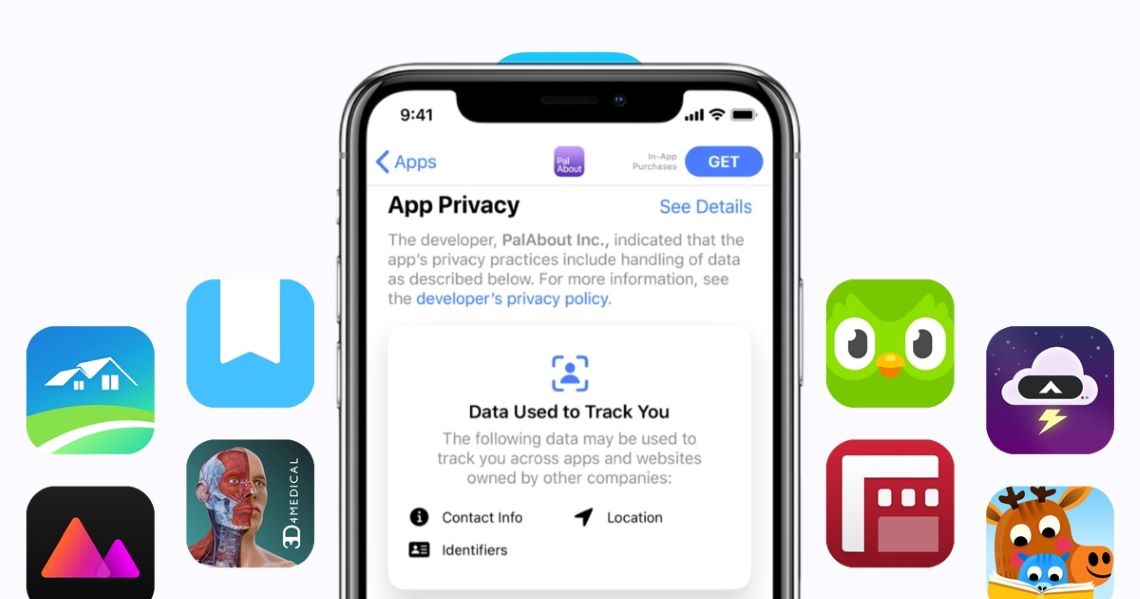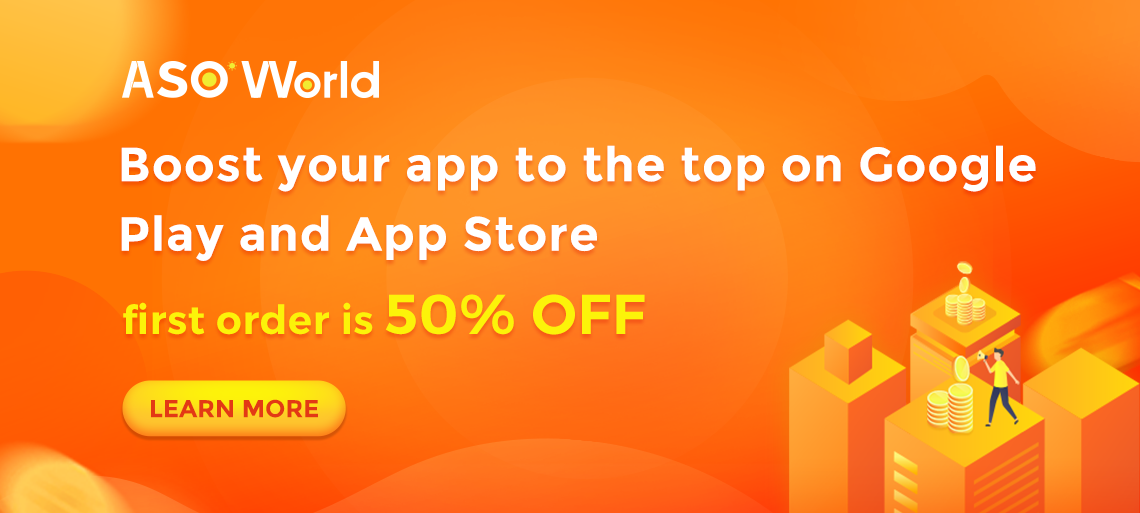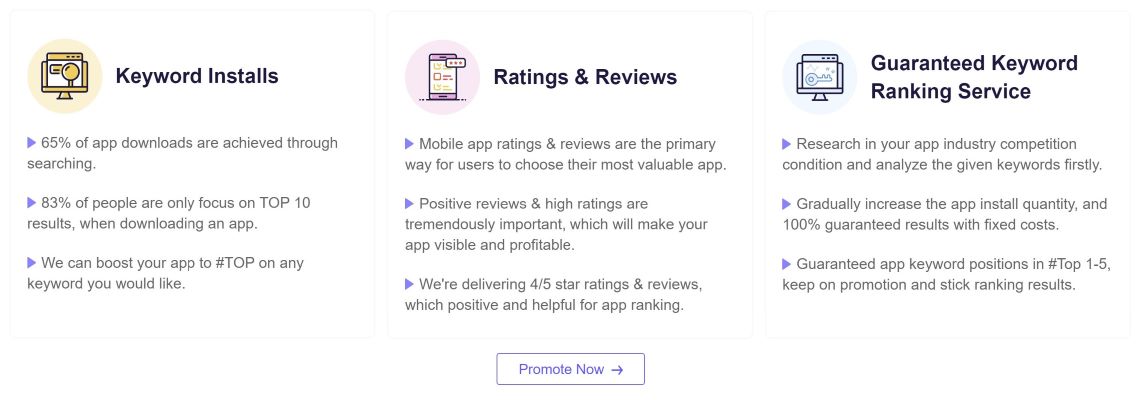
Just after WWDC2022, topics such as iOS16, IDFA and A/B Test are once again hotly debated. And more and more app marketers focus on the topics as what will happen with Apple and Google's privacy updates and how to refine your app store optimization strategy to maximize your marketing effectiveness under the new policies.

Click "
Learn More" to drive your
apps & games business with
ASO World app promotion service now.
What does Apple's App Store privacy policy change mean for app developers?
As Apple begins to focus more attention on user privacy protection and related user experience, for iOS15, how app marketers can manage ads more effectively, advance PPO (product page optimization) and A/B test has been hotly debated. Aspects such as effective and accurate targeting of traffic have also been a problem for everyone.
What does it mean for app promoters under Apple's latest privacy policy?
What we can do for your app growth?
* Grow with our app growth solutions - choose guaranteed app ranking service for TOP 5 app ranking acquirement, and maximize your app traffic.
Or click the "Promote Now" above (for increase app installs, or keyword installs and app reviews and ratings service for app visibility.
A new privacy policy change: Apple has created a more transparent and smarter way for users to track their privacy.
The latest system in-app advertising, also known as app tracking transparency, requires users to opt-in before being tracked by advertisers. In other words, if someone wants an app to track them, they have to let the app know - every time they use it. Experts agree that this is ultimately a good thing for consumers, because transparency is always a healthy thing when it comes to privacy.
But how does this affect your mobile marketing, many of you may be wondering? Well, there are two main things you should know.
Apple's new iOS14 release will prompt users to opt in or out of receiving ads.
Apple will begin applying App Transparency to apps, but not browsers. If you want personalized ads from apps instead of browsers (like Facebook), then you'll need to opt in. By opting in only when necessary and at each user's discretion, Apple empowers customers to do so through their phones and prevents intrusive ads.
This is intended to provide greater privacy protections for Apple users; however, Facebook says it will hurt businesses who rely on the platform.
Consumers who opt out of tracking will see both generic and non-personalized ads.
You don't have to panic: generic ads still work. In fact, generic ads typically have a lower cost per conversion than personalized ads.
A key benefit of low-targeted ads is that they can have higher overall engagement rates and increase brand awareness by gaining better exposure among a variety of potential consumers. Organic ads are also not limited by the need to target individuals based on their interests, making them a cost effective option when looking for advertising campaigns.
When you tailor ads to specific people, you are also targeting their interests. If your goal is to attract a similar group of people with the same interests, generic ads still work. The reason generic ads are so popular among advertisers is because of its simplicity and accessibility.
What does the privacy policy of google app store mean to app marketers?
In terms of market volume and the number of downloads that each popular application in the market gets from Apple and Google play store, we can easily find from recent reports that the volume of Google App Market is almost three times that of Apple Market. Android's audience, perhaps directly related to the proportion of people using Android terminals around the world, is always far higher than Apple's audience in terms of volume.
So, does Google app store have the same numerous problems as Apple app store in terms of privacy policy, which affects the promotion and marketing effect of the app markets?
Google play store has announced changes that will affect Android users.
Google will update its privacy policy to limit the data shared on its Android devices. Although these changes are not as disruptive as Apple's last year.
What does these changes mean to app marketers?
Apple's major updates are in Safari 14, including in macOS Big Sur and iPadOS 14.
Google play store has said it will continue to support other technologies for at least two years, but has not given an exact time frame.
To succeed in a post-privacy world, your business must consider audience insights and how they prefer to communicate with them. What questions should you think about?
● What do consumers want from their interactions with your brand?
● Why do consumers see your ads, and what makes them appealing to them?
● What does your brand stand for? What value does it provide to customers?
● Brands can test direct response campaigns for a wider audience based on broad objectives (e.g., interests or demographics).
Companies can explore the audiences they want to target and experiment with social media. They can see which strategies are successful for their ads and apps because they have a larger audience that may have common interests or demographics.
Working with a mobile marketing agency that has experience in user permissions and user data privacy can help you understand Apple and Google's new privacy changes.
You can use retargeting to direct users who have previously visited your site back to your site. Retargeting is a powerful way to engage these people with specific ads tailored to their interests.
Ads can be customized for users who viewed an item and added it to their cart but did not purchase it. To increase the likelihood of a purchase, you can display ads to remind users of the products they left behind.
How will privacy policy changes in the Apple and Google markets affect mobile marketing?
The changes imposed by Apple store and Google play store will undoubtedly drive change in the industry. As a result, you may need to adjust your marketing strategy.
Adjustments in data tracking
When marketing a product, you can drive people to a website and segment them based on what they view in an ad. In doing so, you can better control your app promotion campaigns on the Google play store by segmenting users to specific channels and limiting their data access to Facebook. You can also create more conversions for free as IDFAs are passed between sites. However, this flexibility does reduce some tracking capabilities for marketers because IDFA data is not passed between apps.
If you are marketing an app or some services that require an app download and want to target customers through Facebook or Google Ads outside of apps and mobile search engines, it's best to create the landing page within your own website (rather than a third-party one). From there, redirect customers back to the app they downloaded via deep linking technology - this will allow them to skip the login/registration form when they return later.
Summary
We know that Apple's privacy policy brings us more than just changes and attrition in data tracking, under the new Apple app store policy, we can't ignore the advancement of
A/B testing and other projects,
ASOWorld's technical team has been focusing on these aspects, trying to deduce and verify new solutions by big data analysis, to make sure that our Apple App Store search ad service will bring a different experience to our customers.
We also propose more effective
PPO optimization strategies in our
ASO service to ensure that our users' apps keep growing rapidly in the Apple app store.








